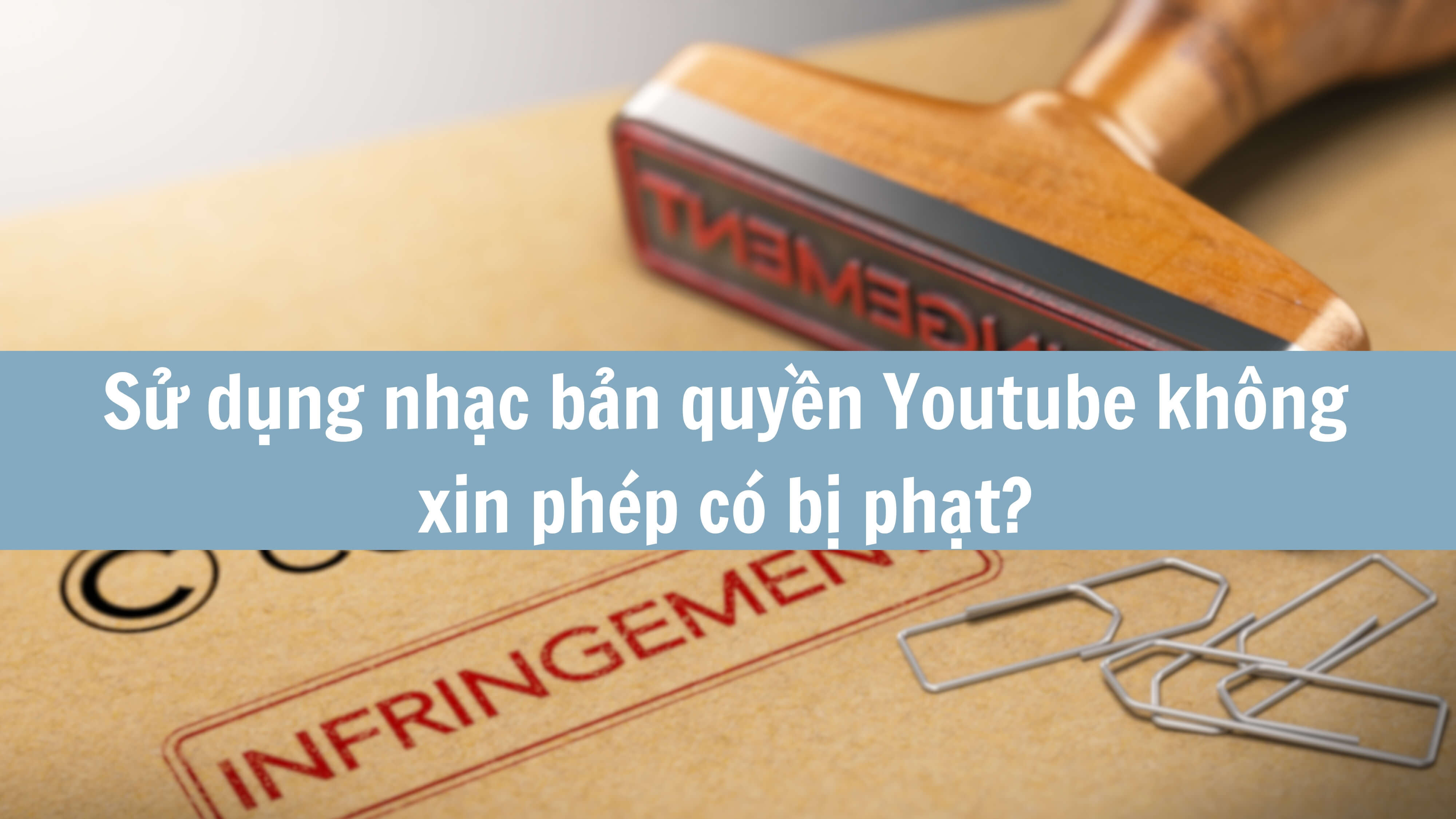 Tìm kiếm
Tìm kiếm
Chương XVI Luật Sở hữu trí tuệ 2005: Quy định chung về bảo vệ quyền sở hữu trí tuệ
| Số hiệu: | 50/2005/QH11 | Loại văn bản: | Luật |
| Nơi ban hành: | Quốc hội | Người ký: | Nguyễn Văn An |
| Ngày ban hành: | 29/11/2005 | Ngày hiệu lực: | 01/07/2006 |
| Ngày công báo: | 18/02/2006 | Số công báo: | Từ số 33 đến số 34 |
| Lĩnh vực: | Sở hữu trí tuệ, Quyền dân sự | Tình trạng: | Còn hiệu lực |
TÓM TẮT VĂN BẢN
Luật Sở hữu trí tuệ 2005 được Quốc hội thông qua ngày 29/11/2005, gồm 6 phần 18 Chương và 222 Điều, quy định về quyền tác giả và quyền liên quan đến quyền tác giả; quyền sở hữu công nghiệp, quyền đối với giống cây trồng và việc bảo hộ các quyền đó.
Luật này có một số nội dung đáng chú ý như sau:
- Quyền tác giả được phát sinh kể từ khi tác phẩm được sáng tạo; thể hiện dưới một hình thức vật chất nhất định, không phân biệt nội dung, chất lượng, hình thức, phương tiện, ngôn ngữ, đã công bố hay chưa công bố, đã đăng ký hay chưa đăng ký.
Quyền liên quan phát sinh kể từ khi cuộc biểu diễn, bản ghi âm, ghi hình, chương trình phát sóng, tín hiệu vệ tinh mang chương trình được mã hoá được định hình hoặc thực hiện mà không gây phương hại đến quyền tác giả...
- Trong trường hợp nhằm bảo đảm mục tiêu quốc phòng, an ninh, dân sinh và các lợi ích khác của Nhà nước, xã hội quy định tại Luật này, Nhà nước có quyền cấm hoặc hạn chế chủ thể quyền sở hữu trí tuệ thực hiện quyền của mình hoặc buộc chủ thể quyền sở hữu trí tuệ phải cho phép tổ chức, cá nhân khác sử dụng một hoặc một số quyền của mình với những điều kiện phù hợp...
- Trong trường hợp tác phẩm, cuộc biểu diễn, bản ghi âm, ghi hình, chương trình phát sóng có đồng chủ sở hữu thì việc chuyển nhượng phải có sự thoả thuận của tất cả các đồng chủ sở hữu, trong trường hợp có đồng chủ sở hữu nhưng tác phẩm, cuộc biểu diễn, bản ghi âm, ghi hình, chương trình phát sóng có các phần riêng biệt có thể tách ra sử dụng độc lập thì chủ sở hữu quyền tác giả, chủ sở hữu quyền liên quan có quyền chuyển nhượng quyền tác giả, quyền liên quan đối với phần riêng biệt của mình cho tổ chức, cá nhân khác...
Luật này có hiệu lực kể từ ngày 01/7/2006.
Văn bản tiếng việt
Văn bản tiếng anh
1. Chủ thể quyền sở hữu trí tuệ có quyền áp dụng các biện pháp sau đây để bảo vệ quyền sở hữu trí tuệ của mình:
a) Áp dụng biện pháp công nghệ nhằm ngăn ngừa hành vi xâm phạm quyền sở hữu trí tuệ;
b) Yêu cầu tổ chức, cá nhân có hành vi xâm phạm quyền sở hữu trí tuệ phải chấm dứt hành vi xâm phạm, xin lỗi, cải chính công khai, bồi thường thiệt hại;
c) Yêu cầu cơ quan nhà nước có thẩm quyền xử lý hành vi xâm phạm quyền sở hữu trí tuệ theo quy định của Luật này và các quy định khác của pháp luật có liên quan;
d) Khởi kiện ra tòa án hoặc trọng tài để bảo vệ quyền, lợi ích hợp pháp của mình.Bổ sung
2. Tổ chức, cá nhân bị thiệt hại do hành vi xâm phạm quyền sở hữu trí tuệ hoặc phát hiện hành vi xâm phạm quyền sở hữu trí tuệ gây thiệt hại cho người tiêu dùng hoặc cho xã hội có quyền yêu cầu cơ quan nhà nước có thẩm quyền xử lý hành vi xâm phạm quyền sở hữu trí tuệ theo quy định của Luật này và các quy định khác của pháp luật có liên quan.
3. Tổ chức, cá nhân bị thiệt hại hoặc có khả năng bị thiệt hại do hành vi cạnh tranh không lành mạnh có quyền yêu cầu cơ quan nhà nước có thẩm quyền áp dụng các biện pháp dân sự quy định tại Điều 202 của Luật này và các biện pháp hành chính theo quy định của pháp luật về cạnh tranh.Bổ sung
1. Tổ chức, cá nhân có hành vi xâm phạm quyền sở hữu trí tuệ của tổ chức, cá nhân khác thì tuỳ theo tính chất, mức độ xâm phạm, có thể bị xử lý bằng biện pháp dân sự, hành chính hoặc hình sự.
2. Trong trường hợp cần thiết, cơ quan nhà nước có thẩm quyền có thể áp dụng biện pháp khẩn cấp tạm thời, biện pháp kiểm soát hàng hoá xuất khẩu, nhập khẩu liên quan đến sở hữu trí tuệ, biện pháp ngăn chặn và bảo đảm xử phạt hành chính theo quy định của Luật này và các quy định khác của pháp luật có liên quan.
1. Trong phạm vi nhiệm vụ, quyền hạn của mình, các cơ quan Toà án, Thanh tra, Quản lý thị trường, Hải quan, Công an, Uỷ ban nhân dân các cấp có thẩm quyền xử lý hành vi xâm phạm quyền sở hữu trí tuệ.
2. Việc áp dụng biện pháp dân sự, hình sự thuộc thẩm quyền của Toà án. Trong trường hợp cần thiết, Tòa án có thể áp dụng biện pháp khẩn cấp tạm thời theo quy định của pháp luật.
3. Việc áp dụng biện pháp hành chính thuộc thẩm quyền của các cơ quan Thanh tra, Công an, Quản lý thị trường, Hải quan, Uỷ ban nhân dân các cấp. Trong trường hợp cần thiết, các cơ quan này có thể áp dụng biện pháp ngăn chặn và bảo đảm xử phạt hành chính theo quy định của pháp luật.
4. Việc áp dụng biện pháp kiểm soát hàng hoá xuất khẩu, nhập khẩu liên quan đến sở hữu trí tuệ thuộc thẩm quyền của cơ quan hải quan.
1. Giám định về sở hữu trí tuệ là việc tổ chức, cá nhân có thẩm quyền sử dụng kiến thức, nghiệp vụ chuyên môn để đánh giá, kết luận về những vấn đề có liên quan đến vụ việc xâm phạm quyền sở hữu trí tuệ.Bổ sung
2. Cơ quan nhà nước có thẩm quyền xử lý hành vi xâm phạm quyền sở hữu trí tuệ có quyền trưng cầu giám định về sở hữu trí tuệ khi giải quyết vụ việc mà mình đang thụ lý.Bổ sung
3. Chủ thể quyền sở hữu trí tuệ và tổ chức, cá nhân khác có liên quan có quyền yêu cầu giám định về sở hữu trí tuệ để bảo vệ quyền và lợi ích hợp pháp của mình.
4. Chính phủ quy định cụ thể hoạt động giám định về sở hữu trí tuệ.
GENERAL PROVISIONS ON PROTECTION OF INTELLECTUAL PROPERTY RIGHTS
Article 198. Right to self-protection
1. An intellectual property right holder shall have the right to apply the following measures to protect the intellectual property rights of such holder:
(a) To apply technological measures to prevent acts of infringement of its intellectual property rights;
(b) To request any organization or individual who commits an act of infringement of the intellectual property rights of the holder to terminate such act, make a public apology or rectification, and pay damages;
(c) To request the competent State body to deal with acts of infringement of its intellectual property rights in accordance with the provisions of this Law and other relevant laws;
(d) To initiate a lawsuit at a court or a claim at an arbitration centre to protect the legitimate rights and interests of the holder.
2. Organizations and individuals who suffer loss and damage caused by acts of infringement of intellectual property rights or who discover acts of infringement of intellectual property rights which cause loss and damage to consumers or society shall have the right to request the competent State body to deal with such acts in accordance with the provisions of this Law and other relevant laws.
3. Organizations and individuals who suffer loss and damage or who are likely to suffer loss and damage caused by acts of unfair competition shall have the right to request the competent State body to apply the civil remedies stipulated in article 202 of this Law and the administrative remedies stipulated in the law on competition.
Article 199. Remedies when dealing with acts of infringement of intellectual property rights
1. Any organization or individual who commits an act of infringement of the intellectual property rights of another organization or individual shall, depending upon the nature and seriousness of such infringement, be dealt with by the application of civil, administrative or criminal remedies.
2. In necessary cases, the competent State body may apply provisional urgent measures, measures to control intellectual property related imports and exports, preventive measures and measures to secure enforcement of an administrative penalty in accordance with the provisions of this Law and other relevant laws.
Article 200. Authority for dealing with acts of infringement of intellectual property rights
1. The following bodies shall, within the scope of their respective duties and powers, have authority to deal with acts of infringement of intellectual property rights: courts, inspectorates, market management offices, customs offices, police offices and people's committees at all levels.
2. The application of civil and criminal remedies shall fall within the authority of courts. In necessary cases, courts may apply provisional urgent measures stipulated by law.
3. The application of administrative remedies shall fall within the authority of inspectorates, police offices, market management offices, customs offices and people's committees at all levels. In necessary cases, such bodies may apply preventive measures stipulated by law or measures to secure payment of administrative fines stipulated by law.
4. The application of measures to control intellectual property related imports and exports shall fall within the authority of customs offices.
Article 201. Intellectual property assessment
1. Intellectual property assessment means the use by competent organizations or individuals of their professional knowledge and expertise to make an assessment of and conclusions on matters related to cases of infringement of intellectual property rights.
2. A State body competent to deal with acts of infringement of intellectual property rights shall have the right to arrange for an intellectual property assessment while dealing with a case for which such body has accepted jurisdiction.
3. Intellectual property right holders and other related organizations and individuals shall have the right to request an intellectual property assessment in order to protect the legitimate rights and interests of such holder, organization or individual.
4. The Government shall provide detailed guidelines on activities being intellectual property assessment.
Văn bản liên quan
Cập nhật
Điều 348. Đình chỉ xét xử phúc thẩm
Điều 365. Giải thích, sửa chữa bản án, quyết định của Tòa án
Điều 7. Giới hạn quyền sở hữu trí tuệ
Điều 8. Chính sách của Nhà nước về sở hữu trí tuệ
Mục 1. ĐIỀU KIỆN BẢO HỘ QUYỀN TÁC GIẢ
Điều 14. Các loại hình tác phẩm được bảo hộ quyền tác giả
Điều 16. Tổ chức, cá nhân được bảo hộ quyền liên quan
Mục 1. NỘI DUNG, GIỚI HẠN QUYỀN, THỜI HẠN BẢO HỘ QUYỀN TÁC GIẢ
Điều 21. Quyền tác giả đối với tác phẩm điện ảnh, tác phẩm sân khấu
Điều 22. Quyền tác giả đối với chương trình máy tính, sưu tập dữ liệu
Điều 28. Hành vi xâm phạm quyền tác giả
Điều 29. Quyền của người biểu diễn
Điều 31. Quyền của tổ chức phát sóng
Điều 35. Hành vi xâm phạm các quyền liên quan
Điều 36. Chủ sở hữu quyền tác giả
Điều 43. Tác phẩm thuộc về công chúng
Điều 44. Chủ sở hữu quyền liên quan
Điều 47. Quy định chung về chuyển quyền sử dụng quyền tác giả, quyền liên quan
Điều 49. Đăng ký quyền tác giả, quyền liên quan
Điều 50. Đơn đăng ký quyền tác giả, quyền liên quan
Điều 52. Thời hạn cấp Giấy chứng nhận đăng ký quyền tác giả, Giấy chứng nhận đăng ký quyền liên quan
Điều 56. Tổ chức đại diện tập thể quyền tác giả, quyền liên quan
Điều 151. Dịch vụ đại diện sở hữu công nghiệp
Điều 153. Trách nhiệm của đại diện sở hữu công nghiệp
Điều 155. Điều kiện hành nghề dịch vụ đại diện sở hữu công nghiệp
Điều 60. Tính mới của sáng chế
Điều 65. Tính mới của kiểu dáng công nghiệp
Điều 71. Tính mới thương mại của thiết kế bố trí
Điều 72. Điều kiện chung đối với nhãn hiệu được bảo hộ
Điều 73. Dấu hiệu không được bảo hộ với danh nghĩa nhãn hiệu
Điều 74. Khả năng phân biệt của nhãn hiệu
Điều 75. Tiêu chí đánh giá nhãn hiệu nổi tiếng
Điều 79. Điều kiện chung đối với chỉ dẫn địa lý được bảo hộ
Mục 1. ĐĂNG KÝ SÁNG CHẾ, KIỂU DÁNG CÔNG NGHIỆP,THIẾT KẾ BỐ TRÍ, NHÃN HIỆU, CHỈ DẪN ĐỊA LÝ
Điều 86. Quyền đăng ký sáng chế, kiểu dáng công nghiệp, thiết kế bố trí
Điều 88. Quyền đăng ký chỉ dẫn địa lý
Điều 89. Cách thức nộp đơn đăng ký xác lập quyền sở hữu công nghiệp
Điều 93. Hiệu lực của văn bằng bảo hộ
Điều 94. Duy trì, gia hạn hiệu lực văn bằng bảo hộ
Điều 95. Chấm dứt hiệu lực văn bằng bảo hộ
Điều 96. Huỷ bỏ hiệu lực văn bằng bảo hộ
Điều 97. Sửa đổi văn bằng bảo hộ
Điều 100. Yêu cầu chung đối với đơn đăng ký sở hữu công nghiệp
Điều 103. Yêu cầu đối với đơn đăng ký kiểu dáng công nghiệp
Điều 105. Yêu cầu đối với đơn đăng ký nhãn hiệu
Điều 106. Yêu cầu đối với đơn đăng ký chỉ dẫn địa lý
Mục 3. THỦ TỤC XỬ LÝ ĐƠN ĐĂNG KÝ SỞ HỮU CÔNG NGHIỆP VÀ CẤP VĂN BẰNG BẢO HỘ
Điều 108. Tiếp nhận đơn đăng ký sở hữu công nghiệp, ngày nộp đơn
Điều 109. Thẩm định hình thức đơn đăng ký sở hữu công nghiệp
Điều 110. Công bố đơn đăng ký sở hữu công nghiệp
Điều 112. Ý kiến của người thứ ba về việc cấp văn bằng bảo hộ
Điều 114. Thẩm định nội dung đơn đăng ký sở hữu công nghiệp
Điều 116. Rút đơn đăng ký sở hữu công nghiệp
Điều 117. Từ chối cấp văn bằng bảo hộ
Điều 118. Cấp văn bằng bảo hộ, đăng bạ
Điều 119. Thời hạn xử lý đơn đăng ký sở hữu công nghiệp
Mục 1. CHỦ SỞ HỮU VÀ NỘI DUNG QUYỀN SỞ HỮU CÔNG NGHIỆP
Điều 121. Chủ sở hữu đối tượng sở hữu công nghiệp
Điều 123. Quyền của chủ sở hữu đối tượng sở hữu công nghiệp
Điều 124. Sử dụng đối tượng sở hữu công nghiệp
Điều 125. Quyền ngăn cấm người khác sử dụng đối tượng sở hữu công nghiệp
Điều 128. Nghĩa vụ bảo mật dữ liệu thử nghiệm
Điều 130. Hành vi cạnh tranh không lành mạnh
Điều 131. Quyền tạm thời đối với sáng chế, kiểu dáng công nghiệp, thiết kế bố trí
Mục 2. GIỚI HẠN QUYỀN SỞ HỮU CÔNG NGHIỆP
Điều 133. Quyền sử dụng sáng chế nhân danh Nhà nước
Điều 135. Nghĩa vụ trả thù lao cho tác giả sáng chế, kiểu dáng công nghiệp, thiết kế bố trí
Điều 139. Các điều kiện hạn chế việc chuyển nhượng quyền sở hữu công nghiệp
Điều 145. Căn cứ bắt buộc chuyển giao quyền sử dụng đối với sáng chế
Điều 146. Điều kiện hạn chế quyền sử dụng sáng chế được chuyển giao theo quyết định bắt buộc
Điều 147. Thẩm quyền và thủ tục chuyển giao quyền sử dụng sáng chế theo quyết định bắt buộc
Điều 157. Tổ chức, cá nhân được bảo hộ quyền đối với giống cây trồng
Điều 158. Điều kiện chung đối với giống cây trồng được bảo hộ
Điều 159. Tính mới của giống cây trồng
Điều 163. Tên của giống cây trồng
Điều 164. Đăng ký quyền đối với giống cây trồng
Điều 169. Hiệu lực của Bằng bảo hộ giống cây trồng
Điều 170. Đình chỉ, phục hồi hiệu lực Bằng bảo hộ giống cây trồng
Điều 171. Huỷ bỏ hiệu lực Bằng bảo hộ giống cây trồng
Điều 172. Sửa đổi, cấp lại Bằng bảo hộ giống cây trồng
Điều 176. Thẩm định hình thức đơn đăng ký bảo hộ
Điều 180. Rút đơn đăng ký bảo hộ
Điều 183. Cấp Bằng bảo hộ giống cây trồng
Điều 185. Quyền tác giả giống cây trồng
Điều 189. Quyền tạm thời đối với giống cây trồng
Mục 2. GIỚI HẠN QUYỀN ĐỐI VỚI GIỐNG CÂY TRỒNG
Điều 191. Nghĩa vụ của chủ bằng bảo hộ và tác giả giống cây trồng
Điều 201. Giám định về sở hữu trí tuệ
Điều 203. Quyền và nghĩa vụ chứng minh của đương sự
Điều 209. Huỷ bỏ việc áp dụng biện pháp khẩn cấp tạm thời
Điều 210. Thẩm quyền, thủ tục áp dụng biện pháp khẩn cấp tạm thời
Điều 212. Hành vi xâm phạm quyền sở hữu trí tuệ bị xử lý hình sự
Điều 213. Hàng hoá giả mạo về sở hữu trí tuệ
Điều 215. Các biện pháp ngăn chặn và bảo đảm xử phạt hành chính
Điều 216. Biện pháp kiểm soát hàng hoá xuất khẩu, nhập khẩu liên quan đến sở hữu trí tuệ
Điều 218. Thủ tục áp dụng biện pháp tạm dừng làm thủ tục hải quan
Điều 219. Kiểm tra, giám sát để phát hiện hàng hoá có dấu hiệu xâm phạm quyền sở hữu trí tuệ
Điều 3. Đối tượng quyền sở hữu trí tuệ
Điều 7. Giới hạn quyền sở hữu trí tuệ
Điều 8. Chính sách của Nhà nước về sở hữu trí tuệ
Điều 11. Trách nhiệm quản lý nhà nước về sở hữu trí tuệ
Điều 14. Các loại hình tác phẩm được bảo hộ quyền tác giả
Điều 27. Thời hạn bảo hộ quyền tác giả
Điều 30. Quyền của nhà sản xuất bản ghi âm, ghi hình
Điều 41. Chủ sở hữu quyền tác giả là người được chuyển giao quyền
Điều 42. Chủ sở hữu quyền tác giả là Nhà nước
Điều 50. Đơn đăng ký quyền tác giả, quyền liên quan
Điều 154. Điều kiện kinh doanh dịch vụ đại diện sở hữu công nghiệp
Điều 87. Quyền đăng ký nhãn hiệu
Điều 90. Nguyên tắc nộp đơn đầu tiên
Điều 119. Thời hạn xử lý đơn đăng ký sở hữu công nghiệp
Điều 134. Quyền sử dụng trước đối với sáng chế, kiểu dáng công nghiệp
Điều 157. Tổ chức, cá nhân được bảo hộ quyền đối với giống cây trồng
Điều 160. Tính khác biệt của giống cây trồng
Điều 163. Tên của giống cây trồng
Điều 165. Cách thức nộp đơn đăng ký quyền đối với giống cây trồng
Điều 186. Quyền của chủ bằng bảo hộ
Điều 187. Mở rộng quyền của chủ bằng bảo hộ
Điều 190. Hạn chế quyền của chủ bằng bảo hộ giống cây trồng
Điều 194. Chuyển nhượng quyền đối với giống cây trồng
Điều 201. Giám định về sở hữu trí tuệ
Điều 211. Hành vi xâm phạm quyền sở hữu trí tuệ bị xử phạt hành chính
Điều 214. Các hình thức xử phạt hành chính và biện pháp khắc phục hậu quả
Điều 218. Thủ tục áp dụng biện pháp tạm dừng làm thủ tục hải quan
Điều 6. Căn cứ phát sinh, xác lập quyền sở hữu trí tuệ
Điều 60. Tính mới của sáng chế
Điều 61. Trình độ sáng tạo của sáng chế
Điều 80. Đối tượng không được bảo hộ với danh nghĩa chỉ dẫn địa lý
Điều 89. Cách thức nộp đơn đăng ký xác lập quyền sở hữu công nghiệp
Mục 4. ĐƠN QUỐC TẾ VÀ XỬ LÝ ĐƠN QUỐC TẾ
Điều 120. Đơn quốc tế và xử lý đơn quốc tế
Điều 136. Nghĩa vụ sử dụng sáng chế, nhãn hiệu
Điều 148. Hiệu lực của hợp đồng chuyển giao quyền sở hữu công nghiệp
Điều 205. Căn cứ xác định mức bồi thường thiệt hại do xâm phạm quyền sở hữu trí tuệ
Điều 218. Thủ tục áp dụng biện pháp tạm dừng làm thủ tục hải quan
Điều 364. Thẩm quyền và thủ tục ra quyết định thi hành án
Điều 13. Tác giả, chủ sở hữu quyền tác giả có tác phẩm được bảo hộ quyền tác giả
Điều 14. Các loại hình tác phẩm được bảo hộ quyền tác giả
Điều 15. Các đối tượng không thuộc phạm vi bảo hộ quyền tác giả
Điều 23. Quyền tác giả đối với tác phẩm văn học, nghệ thuật dân gian
Điều 42. Chủ sở hữu quyền tác giả là Nhà nước
Điều 43. Tác phẩm thuộc về công chúng
Điều 363. Bản án, quyết định của Tòa án được thi hành ngay
Điều 160. Tính khác biệt của giống cây trồng
Mục 1. XÁC LẬP QUYỀN ĐỐI VỚI GIỐNG CÂY TRỒNG
Điều 164. Đăng ký quyền đối với giống cây trồng
Điều 168. Bằng bảo hộ giống cây trồng và Sổ đăng ký quốc gia về giống cây trồng được bảo hộ
Điều 171. Huỷ bỏ hiệu lực Bằng bảo hộ giống cây trồng
Điều 176. Thẩm định hình thức đơn đăng ký bảo hộ
Điều 178. Thẩm định nội dung đơn đăng ký bảo hộ
Điều 179. Sửa đổi, bổ sung đơn đăng ký bảo hộ
Điều 182. Từ chối cấp Bằng bảo hộ giống cây trồng
Điều 187. Mở rộng quyền của chủ bằng bảo hộ
Điều 195. Căn cứ và điều kiện bắt buộc chuyển giao quyền sử dụng giống cây trồng
Điều 196. Thẩm quyền và thủ tục chuyển giao quyền sử dụng giống cây trồng theo quyết định bắt buộc
Điều 14. Các loại hình tác phẩm được bảo hộ quyền tác giả
Điều 15. Các đối tượng không thuộc phạm vi bảo hộ quyền tác giả
Điều 22. Quyền tác giả đối với chương trình máy tính, sưu tập dữ liệu
Điều 38. Chủ sở hữu quyền tác giả là các đồng tác giả
Mục 2. CHUYỂN QUYỀN SỬ DỤNG QUYỀN TÁC GIẢ, QUYỀN LIÊN QUAN
Điều 49. Đăng ký quyền tác giả, quyền liên quan
Điều 53. Hiệu lực Giấy chứng nhận đăng ký quyền tác giả, Giấy chứng nhận đăng ký quyền liên quan
Điều 56. Tổ chức đại diện tập thể quyền tác giả, quyền liên quan
Điều 57. Tổ chức tư vấn, dịch vụ quyền tác giả, quyền liên quan
Điều 199. Biện pháp xử lý hành vi xâm phạm quyền sở hữu trí tuệ
Điều 200. Thẩm quyền xử lý hành vi xâm phạm quyền sở hữu trí tuệ
Điều 11. Trách nhiệm quản lý nhà nước về sở hữu trí tuệ
Điều 199. Biện pháp xử lý hành vi xâm phạm quyền sở hữu trí tuệ
Điều 203. Quyền và nghĩa vụ chứng minh của đương sự
Điều 204. Nguyên tắc xác định thiệt hại do xâm phạm quyền sở hữu trí tuệ
Điều 211. Hành vi xâm phạm quyền sở hữu trí tuệ bị xử phạt hành chính
Điều 214. Các hình thức xử phạt hành chính và biện pháp khắc phục hậu quả
Mục 2. KIỂM SOÁT HÀNG HOÁ XUẤT KHẨU, NHẬP KHẨU LIÊN QUAN ĐẾN SỞ HỮU TRÍ TUỆ
Điều 352. Hoãn phiên tòa phúc thẩm
Điều 355. Thẩm quyền của Hội đồng xét xử phúc thẩm đối với bản án sơ thẩm
Điều 356. Không chấp nhận kháng cáo, kháng nghị và giữ nguyên bản án sơ thẩm
Điều 155. Điều kiện hành nghề dịch vụ đại diện sở hữu công nghiệp
Điều 120. Đơn quốc tế và xử lý đơn quốc tế
Điều 121. Chủ sở hữu đối tượng sở hữu công nghiệp
Điều 122. Tác giả và quyền của tác giả sáng chế, kiểu dáng công nghiệp, thiết kế bố trí
Điều 124. Sử dụng đối tượng sở hữu công nghiệp
Điều 133. Quyền sử dụng sáng chế nhân danh Nhà nước
Điều 136. Nghĩa vụ sử dụng sáng chế, nhãn hiệu
Điều 147. Thẩm quyền và thủ tục chuyển giao quyền sử dụng sáng chế theo quyết định bắt buộc
Điều 149. Hồ sơ đăng ký hợp đồng chuyển giao quyền sở hữu công nghiệp
Điều 167. Nguyên tắc ưu tiên đối với đơn đăng ký bảo hộ
Điều 175. Tiếp nhận đơn đăng ký bảo hộ, ngày nộp đơn
Điều 178. Thẩm định nội dung đơn đăng ký bảo hộ
Điều 184. Khiếu nại việc cấp hoặc từ chối cấp Bằng bảo hộ giống cây trồng
Điều 189. Quyền tạm thời đối với giống cây trồng
Điều 194. Chuyển nhượng quyền đối với giống cây trồng
Điều 195. Căn cứ và điều kiện bắt buộc chuyển giao quyền sử dụng giống cây trồng
Điều 12. Phí, lệ phí về sở hữu trí tuệ
Điều 98. Sổ đăng ký quốc gia về sở hữu công nghiệp
Điều 99. Công bố các quyết định liên quan đến văn bằng bảo hộ
Điều 102. Yêu cầu đối với đơn đăng ký sáng chế
Điều 104. Yêu cầu đối với đơn đăng ký thiết kế bố trí
Điều 105. Yêu cầu đối với đơn đăng ký nhãn hiệu
Điều 107. Uỷ quyền đại diện trong các thủ tục liên quan đến quyền sở hữu công nghiệp
Điều 109. Thẩm định hình thức đơn đăng ký sở hữu công nghiệp
Bài viết liên quan
Cơ quan có thẩm quyền cấp văn bằng bảo hộ quyền sở hữu trí tuệ đối với các đối tượng sở hữu công nghiệp là gì?

Quyền sở hữu trí tuệ có phải là tài sản riêng của vợ hoặc chồng hay không?

Quyền sở hữu trí tuệ có phải là tài sản riêng của vợ hoặc chồng hay không?
Quyền sở hữu trí tuệ là khái niệm còn khá mơ hồ đối với khá nhiều người. Đây là một loại tài sản được quy định theo pháp luật. Khi kết hôn hoặc ly hôn thì quyền sở hữu trí tuệ được xác định là tài sản riêng của vợ hoặc chồng là có phải hay không? Câu hỏi trên đặc biệt nhận được rất nhiều sự quan tâm. Bài viết sau sẽ giải đáp thắc mắc trên cũng như đem đến các thông tin hữu ích cho quý bạn đọc. 31/12/2024Uỷ quyền là gì? Những quy định về việc ủy quyền mới nhất

Uỷ quyền là gì? Những quy định về việc ủy quyền mới nhất
Ủy quyền là gì? Những quy định mới nhất về việc ủy quyền được pháp luật quy định như thế nào? Theo dõi bài viết dưới đây để có thông tin chính xác nhất về vấn đề này nhé! 03/11/2024Bảo hộ quyền tác giả đối với tác phẩm báo điện tử theo pháp luật hiện hành

Bảo hộ quyền tác giả đối với tác phẩm báo điện tử theo pháp luật hiện hành
Báo điện tử là loại hình báo chí được xây dựng dưới hình thức một trang website và phát hành dựa trên nền tảng Internet. Báo điện tử được xuất bản bởi Tòa soạn điện tử, còn người đọc báo dựa trên máy tính, điện thoại di động, máy tính bảng. có kết nối Internet. Với sự phát triển mạnh mẽ của Internet, báo điện tử bị sao chép rất nhiều trên các trang mạng hiện nay. Vậy quy định pháp luật về bảo hộ quyền tác giả đối với tác phẩm báo điện tử hiện nay như nào? Biện pháp hành chính nào xử phạt cho hành vi xâm phạm quyền tác giả đối với tác phẩm báo điện tử? 03/11/2024Thủ tục chuyển nhượng quyền tác giả theo quy định pháp luật hiện hành

Thủ tục chuyển nhượng quyền tác giả theo quy định pháp luật hiện hành
Chuyển nhượng quyền tác giả cần phải thực hiện trong trường hợp chủ sở hữu quyền tác giả đối với các tác phẩm thực hiện chuyển toàn bộ quyền tài sản của tác phẩm cho chủ sở hữu mới. Vậy thủ tục để thực hiện chuyển nhượng quyền tác giả được quy định thế nào? Pháp luật quy định như thế nào về vấn đề này? Theo dõi bài viết dưới đây để có câu trả lời chính xác nhé! 03/11/2024Sử dụng nhạc bản quyền Youtube không xin phép có bị phạt?


 Luật Sở hữu trí tuệ 2005 (Bản Word)
Luật Sở hữu trí tuệ 2005 (Bản Word)
 Luật Sở hữu trí tuệ 2005 (Bản Pdf)
Luật Sở hữu trí tuệ 2005 (Bản Pdf)